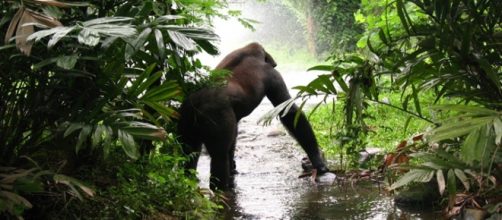There are only 400 of the critically endangered mountain gorillas left in the Bwindi Impenetrable Park in Uganda. Conservationists are alarmed by plans announced that include the stripping of a nearby rainforest to make way for tea plantations. The forest is part of the buffer zone between human habitation and the UNESCO site.
Outside of the buffer zones around the park, the human population is very dense. There are fears that once the buffer zone is removed, humans will be able to encroach into the Bwindi Impenetrable Park to utilize resources.
This might place the future of the gorillas at risk. The Gorilla Organization, which works closely with the communities in the area, is particularly concerned. Executive director, Jillian Miller said that the buffer zone is vital. The Ecologist Org quoted him as saying, “there is a lot of competition for resources - so the buffer zone is vital for the protection of the Park.”
The Gorilla Organization holds very strongly to the conservation of the forests, in order to conserve the great apes that live within them. The Kafuga Pocket Forest, that will lose thousands of hectares if the farming project goes ahead, is close to the Park, and whilst it is not a protected area, it forms an ecological island has a great diversity of wildlife and plants.
The efforts to conserve this pocket forest include a joint project run by Pro-biodiversity Conservationists in Uganda (PROBICOU) and the ITF Sustainable Community Forestry Programme. The plans to work with the local communities, maintain a tree nursery, plant the nearly thirty thousand seedlings they have grown and identify urgent intervention needs to conserve the forest are now at risk of being wiped out.
PROBICOU and the International tree Foundation have launched a campaign online to try and save the forest. Their ITF "Save Uganda’s Kafuga Forest" page explains that there is no time, and donations and signatories to sign their petition are extremely urgent. According to their predictions, the situation is dire and could result in the forest being stripped in a matter of months.
The tea industry is an important foreign exchange earner for the country of Uganda. Approximately 80% of the crop is exported. The climate conditions are ideal for the plants and Uganda is the third largest producer of the crop in Africa.

